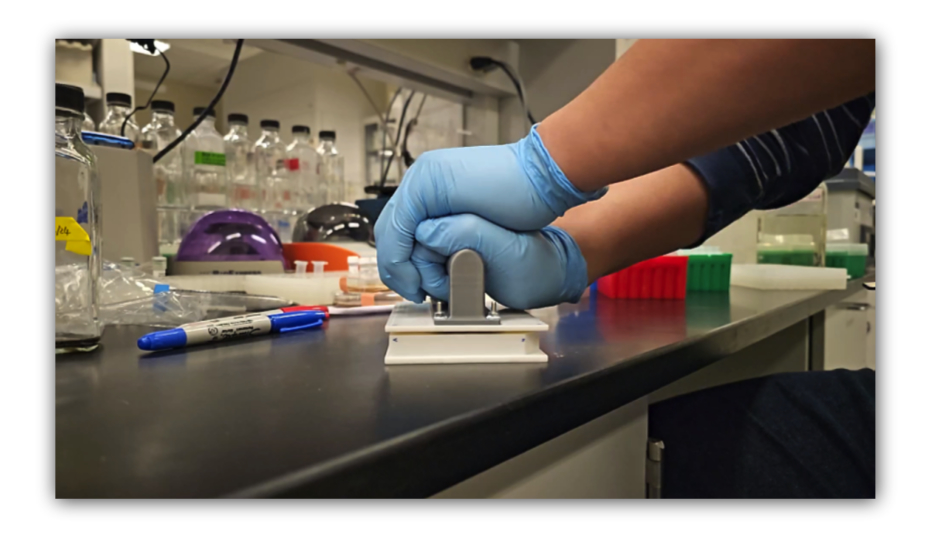U.S. Bioenergy Technologies Office
Researchers sometimes genetically engineer microorganisms—such as fungi—to convert renewable feedstock materials into useful biofuel or biochemical products. Polymerase chain reaction (PCR), which allows researchers to quickly amplify DNA sequences for analysis, is one of the most essential tools in this process. When working to synthesize biofuels using fungi, PCR is particularly important for evaluating various strains of mutated fungi.
A significant bottleneck in this process has been the DNA extraction step. Typically, following genetic modification of a fungus, researchers aim to identify the fungus with the mutation. This requires culturing the fungus into a mature biomass for DNA extraction, a prerequisite for PCR. The traditional DNA extraction from biomass is a tedious, multi-step process involving hazardous chemicals, and can take from three days to a week, significantly delaying biofuel research.
Pacific Northwest National Laboratory (PNNL) researchers have found that simply squashing the fungal spores—rather than the fungal biomass—reliably yields high-quality DNA samples suitable for use in PCR. This discovery allows the researchers to amplify genome DNA orders of magnitude faster than conventional methods. The researchers are calling the method “squash spore PCR.”
However, the spores are small, tough to break open, and don’t respond well to the same extraction chemicals used on fungal biomass. In order to circumvent these obstacles, the researchers needed to go shockingly low-tech, mechanically squashing the spores in a buffer on a microscope slide with their thumbs. After squashing, the DNA is released into the buffer, which can then be used for PCR. This reduces the DNA extraction process from several days to a few minutes.
The technique is remarkably effective, with only a minor downside: squashing lots of samples by hand can be tiring and time-consuming. To address this, the team created a specialized plastic plate with 96 wells and a corresponding cover with pins to more efficiently squash large volumes of samples. Further refinements to the process are ongoing.
This thousand-fold speedup in the time it takes to extract DNA from fungal samples will help researchers at PNNL and across the bioproducts community iterate and analyze mutated fungi much more quickly, accelerating biofuels development. One of the first applications for squash spore PCR at PNNL has been extracting DNA from mutated strains of Asperillus niger, a fungus species that serves as the basis for important bioproducts like 3-HP—an intermediate chemical used in everything from electronics to clothing.


